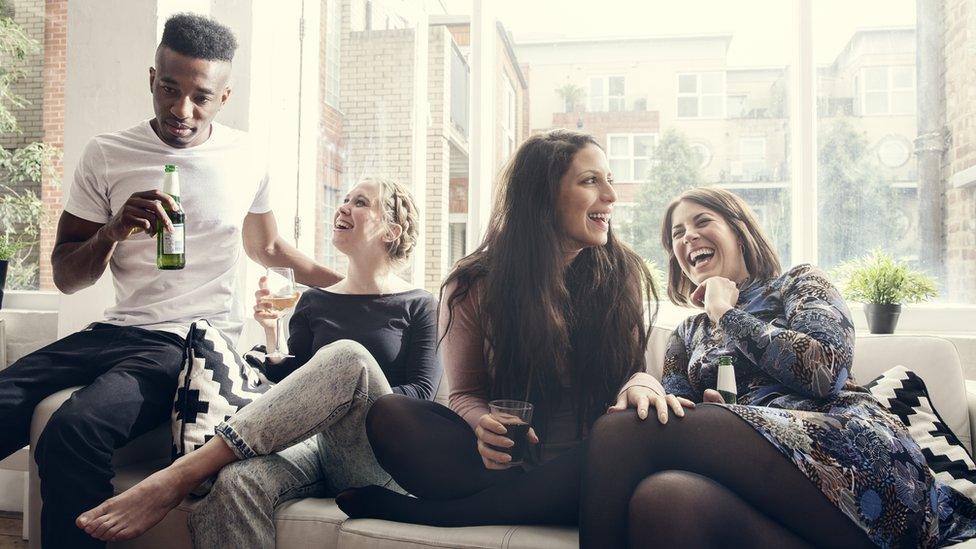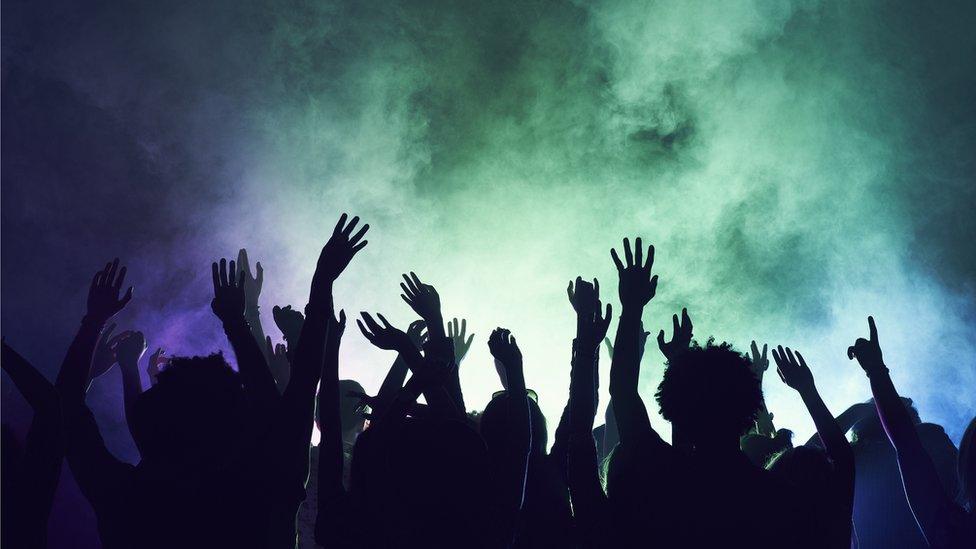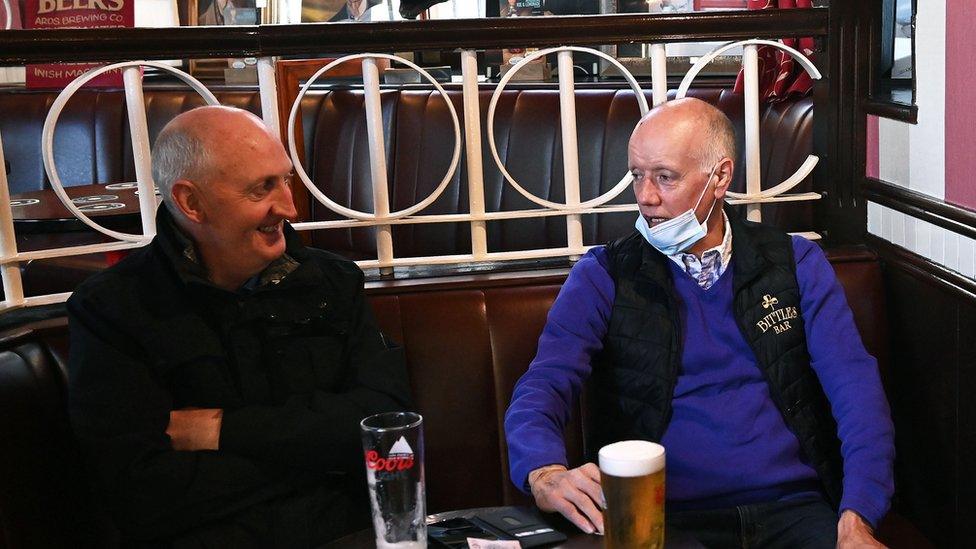Covid-19: More restrictions are relaxed in Northern Ireland
- Published
- comments

The previous 15-person cap on private home gatherings has been lifted
More relaxations to Northern Ireland's Covid-19 restrictions have taken effect.
The decision by Stormont last week allows up to 30 people from an unlimited number of households to meet indoors at a private home.
Audiences at indoor venues will also no longer have to stay seated during performances.
Nightclubs are due to reopen on 31 October, with the end of indoor social distancing rules for hospitality.
From then, the need to be socially distanced will also move to guidance, with people asked to minimise face-to-face contact.
First Minister Paul Givan said it has taken a "determined and combined effort across society to get us here".
He said it was right to "take heart" from the relaxation of some restrictions, but said people should continue to observe remaining rules.
Deputy First Minister Michelle O'Neill warned that Covid-19 still posed a threat to "lives, livelihoods and our health service".
"We have a collective responsibility to keep making the kind of choices that will keep our community as safe as possible," she said.
Under existing rules, social distancing of at least 1m (3ft) remains a legal requirement in pubs, bars and restaurants in Northern Ireland.
But the new rules will allow people to move around hospitality venues and eat and drink while standing.
Large house parties and raves remain banned, and face masks remain mandatory in some settings, including shops and public transport - unless a person is exempt.

Even organisers are encouraged to require proof of double vaccination, Covid antibodies or a negative PCR test
The changes have been welcomed by the arts and hospitality industries, with businesses arguing that social distancing was damaging trade.
Hospitality had faced some of the toughest restrictions during the pandemic, but in recent months those rules have been cut back.
In September, the executive agreed to end social distancing restrictions for shops, theatres and a number of other indoor settings.
Nightclubs have been closed in Northern Ireland since March 2021, but have already re-opened in Great Britain.
The executive has "strongly recommended" that venues and event organisers require attendees to prove they have been fully vaccinated, a positive Covid-19 test within the last 180 days, or a negative PCR test taken within 48 hours of entry, however this is not legally enforceable.
'Covid hasn't gone away'
In the Republic of Ireland, physical distancing rules are due to end by 22 October, under the government's plan to lift almost all remaining restrictions.
However, on Wednesday, Taoiseach (Irish Prime Minister) Micheál Martin said he could not yet guarantee that the easing of Covid rules would proceed, external as planned.
He said the trajectory of the disease had taken a wrong turn after a "sudden increase" in case numbers, with more than 2,000 new cases of Covid-19 reported on Wednesday.
"It's very important that the public at large realise that Covid hasn't gone away," Mr Martin said.
The Tánaiste Leo Varadkar also said the current coronavirus data is "worrying and going in the wrong direction".
He told a meeting of the Fine Gael parliamentary party that 300,000 adults have chosen not to take up a vaccine and "those choices have effects on other people".
A decision on easing restrictions will be taken next week after the Irish government has received further advice from the National Public Health Emergency Team (NPHET).
On Thursday, the Irish Department of Health announced that Irish passport holders who live in and were vaccinated in Great Britain will be able to access the EU Digital Covid Certificate from Friday.
The vaccine "passport" scheme, which allows international travel, came into effect in the Republic of Ireland in July.
Irish passport holders in Northern Ireland have been able to apply for the certificate online, external since 30 September.
The Irish Department of Health said the service will be further extended to Irish passport holders vaccinated outside of the EU in November.
- Published7 October 2021

- Published8 October 2021
